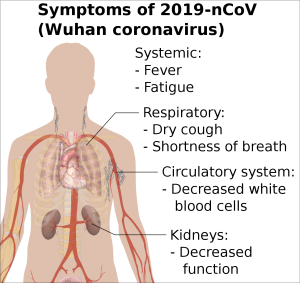

Treatment commonly involves counseling, support groups, and medications to manage depression, anxiety, or other conditions. Patients may be referred to a neurologist. For patients with memory impairment, treatment might involve memory exercises and the use of memory aids such as calendars and planners. If patients have cognitive symptoms such as memory loss and/or brain fog, doctors may recommend exercise and to remain physically active. Medications may also be used to control specific symptoms. Treatment may involve cardiac rehabilitation. Patients with cardiac symptoms may be referred to a cardiovascular specialist for cardiac symptoms, such as rapid heart rate or chest pain. (If blood oxygen saturation levels fall below 92%, they should seek medical attention.) If respiratory symptoms do not improve, patients may be referred to a pulmonologist. Patients may need to use a pulse oximeter to monitor blood oxygen saturation levels. Treatment may involve breathing exercises, use of supplemental oxygen, and pulmonary rehabilitation, a medically guided program in which patients perform exercises and learn breathing techniques. If exercise worsens symptoms, the patient should stop or reduce the intensity and/or duration of the activity. Patients may be taught strategies for “Pacing, Planning, Prioritizing, and Positioning” activities, sometimes known as the “4 Ps.” They may also be advised to undertake a physical exercise program that involves stretching, strengthening, and aerobic activities. In some cases, the doctor will order bloodwork.įor patients who have multiple symptoms, treatment may involve specialists in cardiology, pulmonology, neurology, psychiatry, rehabilitation, and/or other relevant fields of medicine.īelow, by symptom, are treatments and therapies that may help people with long COVID:

Patients who have cardiac symptoms may need to have an electrocardiogram (known as an ECG or EKG), a painless test that measures heart activity. If the patient is experiencing respiratory symptoms, for instance, a chest X-ray may be required. With psychological testing, the patient may need to complete a screening questionnaire.ĭepending on the patient’s symptoms, the doctor may order specific diagnostic tests. Cognitive assessment may involve short tests designed to evaluate memory, language ability, reasoning, and other cognitive skills. Physical tests may include a 6-minute walking test and/or a test in which the patient must sit on and stand up from a chair five times. Depending on the patient’s symptoms, it may also involve physical, cognitive, and psychological testing. The exam will involve routine assessment of blood pressure, heart rate, pulse oximetry, and breathing. The doctor may also ask about underlying medical conditions.Īfter collecting a medical history, the doctor will conduct a physical exam. The doctor will ask whether the patient tested positive for COVID-19, when symptoms began, and which symptoms the patient has experienced since the initial infection. Doctors diagnose it, in large part, based on a patient’s history of COVID-19 and by ruling out other possible causes. There is no single test that can diagnose long COVID. Some with long COVID have difficulties performing everyday chores or even walking short distances. Many people report that long COVID symptoms prevent them from returning to work or school. These symptoms range from mild to debilitating. Some of the most commonly reported symptoms include fatigue, shortness of breath, chest pain, and loss of smell. Symptoms can vary greatly from one person to the next. Some people may experience only one of these symptoms, while others may have two or more. Diarrhea, nausea, and/or abdominal pain.Earache, hearing loss, and/or ringing in ears (tinnitus).Rapid or irregular heartbeat (palpitations).Brain fog (difficulty concentrating, sense of confusion or disorientation).Joint pain muscle aches and pain/weakness.Because of this, long COVID is associated with a broad range of symptoms, including respiratory, neurological, cardiac, and psychological problems, among others. COVID-19 can affect the function of multiple organs in the body, including the lungs, heart, brain, kidneys, and liver.


 0 kommentar(er)
0 kommentar(er)
